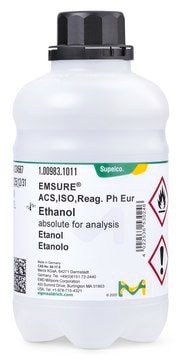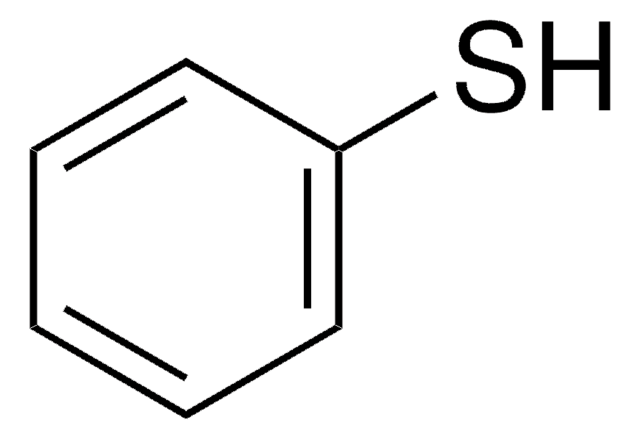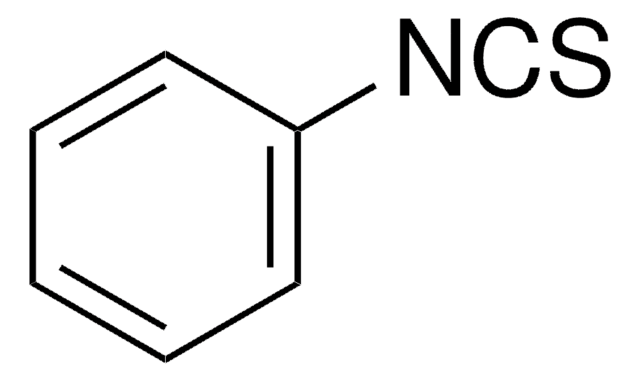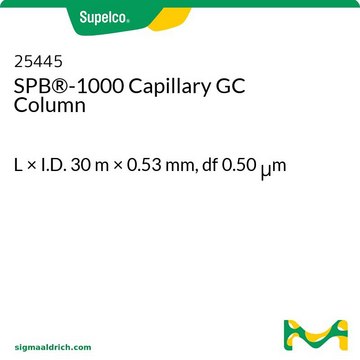24251
Colonne capillaire SPB®-624 pour GC/CPG
L × I.D. 60 m × 0.32 mm, df 1.80 μm
Synonyme(s) :
SPB-624, 60 M 0,32 MM 1,8 UM
About This Item
Produits recommandés
Matériaux
fused silica
Agence
EPA 524.2,0030,624,8260,OLM04.2 VOA
meets requirements for USP G43
Paramètres
≤25-250 °C temperature (isothermal or programmed)
Valeur bêta
44
df
1.80 μm
Technique(s)
gas chromatography (GC): suitable
L × D.I.
60 m × 0.32 mm
Application(s)
environmental
food and beverages
pharmaceutical
Type de colonne
capillary intermediate polar
Vous recherchez des produits similaires ? Visite Guide de comparaison des produits
Catégories apparentées
Description générale
USP Code: This column meets USP G43 requirements.
Phase:
- Bonded
- Proprietary
- ≤0.32 mm I.D.: Subambient to 250 °C (isothermal or programmed)
- ≥0.53 mm I.D.: Subambient to 230 °C (isothermal or programmed)
Application
Autres remarques
Informations légales
Code de la classe de stockage
13 - Non Combustible Solids
Classe de danger pour l'eau (WGK)
nwg
Point d'éclair (°F)
Not applicable
Point d'éclair (°C)
Not applicable
Faites votre choix parmi les versions les plus récentes :
Déjà en possession de ce produit ?
Retrouvez la documentation relative aux produits que vous avez récemment achetés dans la Bibliothèque de documents.
Notre équipe de scientifiques dispose d'une expérience dans tous les secteurs de la recherche, notamment en sciences de la vie, science des matériaux, synthèse chimique, chromatographie, analyse et dans de nombreux autres domaines..
Contacter notre Service technique





